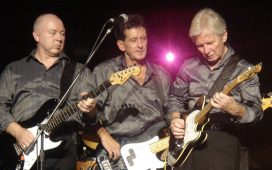Sober and contemplative, with no live audience and no applause, it wasn’t quite the 90th birthday party the BBC Symphony Orchestra might have hoped for. There was more mourning than celebration in a programme that started with an elegy and ended with a musical manifesto against oppression.
The tone may have been serious, but the energy of this first performance in the orchestra’s season was anything but subdued. Social distancing demanded reduced forces. Scattered as individuals across the stage rather than dissolved into musical units, the remaining players were suddenly soloists rather than sections – freer, more expansive, more exposed.
The i newsletter latest news and analysis
Chief conductor Sakari Oramo made the most of this. Scored for 15 strings, Anna Clyne’s 2009 Within Her Arms is a tribute to the composer’s mother that plays with ideas of isolation – single voices drift and pass one another, scarcely touching – and community. Lyrical without being trite, echoes of Vaughan Williams, Strauss and Samuel Barber transformed into something new, it felt here like an ode to the act of music-making itself: fragile but hopeful.
Fragility strengthened into brittle elegance for Haydn’s Symphony No. 49. Oboes and an Eeyore-like bassoon give this rare minor-key symphony its plangent colour. But Oramo and the BBCSO found plenty of shades of grey, from the stately sadness of the opening Adagio to the fidgety, nervous anxiety of the Presto, via the gentlest moment of sunshine in the Trio – a village wind-band passing obliviously through an aristocratic tragedy.
Premiered in 2015 to launch Finnish composer Magnus Lindberg’s residency with the London Philharmonic, Accused is a strange piece. Subtitled “Three Interrogations” this monodrama for high soprano and orchestra takes the transcripts of three historical interrogations – one from the French Revolution, another from Stasi East Germany, and the last from the trial of Bradley (now Chelsea) Manning – as the starting point for a meditation on free speech.
The pettifogging, dictatorial cruelty of state bureaucracy emerges vividly in Lindberg’s orchestra – heavy-footed, relentless, overbearing – though I’m not sure the contrast between their collective force and the lone soprano soloist (a sweet-toned Anu Komsi) emerges as successfully in the new chamber arrangement premiered here. The work remains oddly inscrutable, a drama of contradictory accounts and conflicts that speaks with a single voice.













